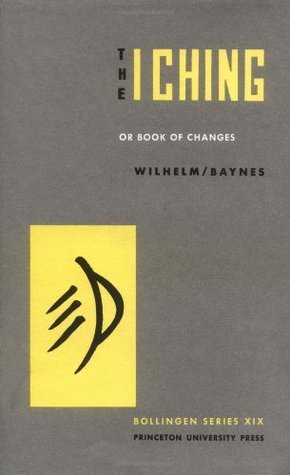
Key Insights & Memorable Quotes
Below are the most popular and impactful highlights and quotes from The I Ching or Book of Changes:
When flowing water...meets with obstacles on its path, a blockage in its journey, it pauses. It increases in volume and strength, filling up in front of the obstacle and eventually spilling past it... Do not turn and run, for there is nowhere worthwhile for you to go. Do not attempt to push ahead into the danger... emulate the example of the water: Pause and build up your strength until the obstacle no longer represents a blockage.
When things reach the extreme, they alternate to the opposite.
How can one expect a state of abundance to be everlasting?
One turns back and submits to fate, changes one's attitude, and finds peace in perseverance.
The wise man gladly leaves fame to others. He does not seek to have credited to himself things that stand accomplished, but hopes to release active forces; that is, he completes his works in such a manner that they may bear fruit for the future.
Man follows Earth, Earth follows Heaven. Heaven follows the Tao. Yet the Tao follows Nature. Tao produced one. One produced two. Two produced Three. Three produced ten thousand beings. Ten thousand beings carry yin and embrace yang; By blending their energies they achieve harmony. Therefore existence and nonexistence produce each other. Difficulty and ease complement each other. Long and short contrast with each other. High and low rely on each other. Sound and voice harmonize with each other. Front and back follow each other. The Tao fulfills its purpose quietly and makes no claim. When success is achieved, withdrawing. The highest good is like water. Water benefits ten thousand beings, Yet it does not contend. Nothing under Heaven is as soft and yielding as water. Yet in attacking the firm and strong, Nothing is better than water.
5. Fifth Six Regret vanishes. Lose or gain, Stop worrying. Going forward: good fortune. Nothing is unfavorable. Win or lose, stop worrying. To proceed will afford ground for congratulation.
Unlimited possibilities are not suited to man; if they existed, his life would only dissolve in the boundless. To become strong, a man’s life needs the limitations ordained by duty and voluntarily accepted. The individual attains significance as a free spirit only by surrounding himself with these limitations and by determining for himself what his duty is.
Clouds rise up to heaven: The image of WAITING. Thus the superior man eats and drinks, is joyous and of good cheer.
Notes of the same key respond to one another; Odors of the same nature merge together. Water flows toward what is wet, Fire rises toward what is dry. Clouds follow dragons; Winds follow tigers.
One should not try to alter natural law by using force. Recognize the situation. In ancient times when there were serious calamities an emperor often issued a “self-blame decree,” a mea culpa, to calm people’s indignation. Through self-examination and by being central and steadfast, wait for another cycle from Hindrance to Advance.
If one overshoots the goal, one cannot hit it. If a bird will not come to its nest but flies higher and higher, it eventually falls into the hunter's net. He who in times of extraordinary salience of small things does not know how to call a halt, but restlessly seeks to press on and on, draws upon himself misfortune at the hands of gods and men, because he deviates from the order of nature.
We are no longer supported by the wise counsel and deep insight of the oracle; therefore we no longer find our way through the mazes of fate and the obscurities of our own natures.
Words have influence only when they are pertinent...
We cannot lose what really belongs to us. Therefore we need have no anxiety.
Genuine modesty sets one to creating order and inspires one to begin by disciplining one's own ego and one's immediate circle. Only through having the courage to marshal one's armies against oneself, will something forceful really be achieved.
Per ritrovarsi nell’infinito bisogna distinguere e congiungere.


